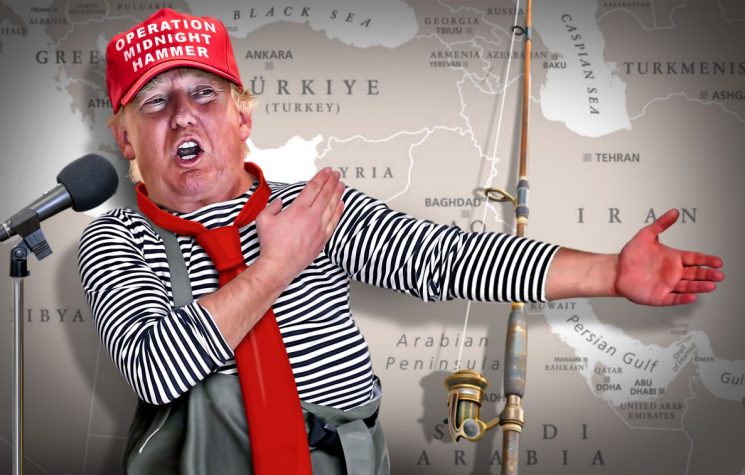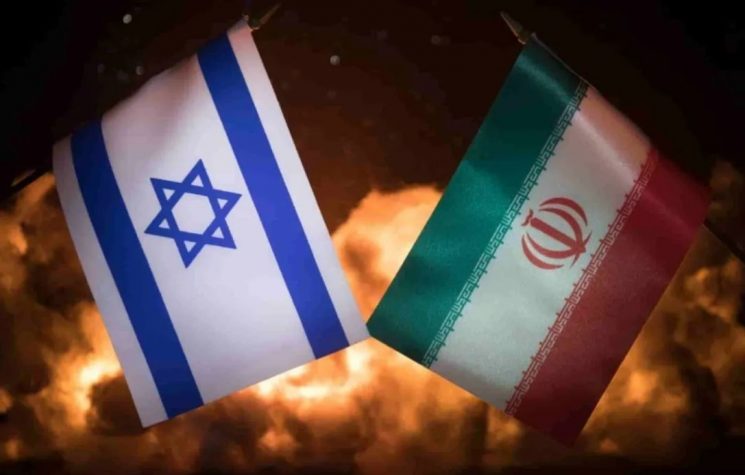Israel teeters at the edge: it will not be able to impose itself over the plurality of resistance that it faces.
Contact us: info@strategic-culture.su
Centuries ago a boy was born. His parents understood that he had a remarkable fate before him which reflected the Will of the Great Shaman. His hair was light, his eyes were light green, and his skin was pale. It seemed obvious that he enjoyed divine favour. But then, one day, the boy’s father – a figure of standing – was killed. The family thus became unprotected, and nomads smashed the remains of his home. They made him a slave. They put wooden stocks over his legs so that he could not walk. He lived like a dog, and grew up like a dog, chained outside, eating rotten food, freezing on winter nights, wishing for death.
Death however spared him. When finally he did escape, his psyche was tortured. The voices inside his head; the screams of his father; the scorching fire; his mother being tortured and killed; All whispered, just destroy everything that is in your way, and these memories will be purged.
But they weren’t. His army killed millions. Nonetheless, he founded a nation of more than one million vassals. He expurgated all concepts of tribal loyalty and old identities for obedience to his State.
He did all this with a tiny army; no more than 100,000. His name comes down to us today as Genghis Khan.
What has this to do with today’s war in the Middle East? Well, firstly we have moved – in this American-facilitated Israeli war – to ‘war without limits’. The rules of war have been evicted; human rights have been discarded; international law has been shed; and the UN Charter is no more. And, as it expands, anything goes – children in Gaza decapitated by bombs, Gaza’s hospitals bombed, and the continuous displacement and massacre of civilians.
The roots to this shift are complex. In part, they spring from the western postmodern zeitgeist. But also they reflect the same dilemma that faced a tormented, twisted Genghis Khan: How would he control the world without a big army; in fact, with only a tiny one.
“Everything that’s happened today was planned out just 50 years ago – back in 1974 and 1973”. I want to describe how the whole strategy that led to the United States today, not wanting peace, but wanting Israel to take over the whole Near East took shape gradually”, Professor Hudson has explained (here and here).
Hudson relates:
“I met many [neocons] at the Hudson Institute, where [I] had worked for five years in the mid ‘70s; some of them, or their fathers, were Trotskyists. They picked up Trotsky’s idea of permanent revolution. That is, an unfolding revolution – whereas Trotsky said what began in Soviet Russia was going to spread around the world: The neocons adapted this and said, No, the permanent Revolution is the American Empire. It’s going to expand, and expand, and nothing can stop us – to the entire world”.
In their ambition, they were another Genghis Khan: the U.S., lacking the military means, would seize the Middle East using Israel as its proxy on the one hand, and Saudi-facilitated Sunni fundamentalism on the other. The Hudson Institute, under Herman Khan, persuaded the dominant political figure Scoop Jackson that Zionism could be America’s battering ram in the Middle East. That was in the early 1970s. By 1996, Scoop Jackson’s former Senate aides had crafted –specifically for Netanyahu – its Clean Break Strategy.
Explicitly, it was the blueprint for ‘a new Middle East’. It argued that the Israel proxy would be served best by regime change in surrounding countries. In March 2003, Patrick J. Buchanan, referring to the 2003 invasion of Iraq, wrote, “Their [Clean Break] plan urged Israel to [pursue regime change through] ‘the principle of preemption'”.
Professor Michael Hudson points out the design’s fatal flaw: The Vietnam War had shown that any attempted conscription by western democracies was not viable. Lyndon Johnson in 1968 had to withdraw from running for election precisely because everywhere he’d go, there would be nonstop stop-the-war demonstrations.
So what then was left to the United States and Israel? Well, what is available – if your objective is to found Greater Israel – is ‘war without limits’ [i.e positively seeking huge collateral deaths] – a war without limits such as that which Genghis Khan practised: the total annihilation of other peoples and the suppression of their separate identities. A single power – the Hobbesian ‘Leviathan’ – achieved through disarming everyone. The ultimate aim being to suppress any plurality of wills.
The flaw is that the Israelis, as the U.S. proxy force, have limited forces, both by numbers (it is a small army, dependent on reservists), and by being constrained by its ranks being drawn from a westernised, postmodern culture.
“Postmodern thinking has swept God, Nature, and Reason away. The individual replaces everything. Facts are only what he wants them to be … There are only fictions left—but these fictions are also all of reality. Western society thus begins to look very much like an insane asylum. Of course, this is only a collective paranoia: one bomb falls somewhere in our country, and very real realities, which mock our discourses, are destroyed and this philosophy collapses”, warns Dr Henri Hude.
This statement, directed more broadly at the West, however summarizes Israel exactly. The latter tries to substitute the Talmud as the epistemological basis of its society, yet young Israel is largely the same TikTok generation of individualists as in the West, whose ‘facts’ come only from what the government tells them to be. And as the bombs fall on Tel Aviv, the country sinks into collective paranoia and events mock the state panglossian discourses.
At bottom, postmodernism places the highest priority on Life and individual freedom. The capacity to adapt to the brutalities of this style of limitless war therefore hangs very much on culture. To successfully adapt to the horror of death and destruction, one must accept the very idea of sacrifice and suffering – the spilling of blood to feed the earth towards new growth.
Israel does not have a culture of sacrifice, but its adversaries do. If culture is unable to offer a meaning to the notion of sacrifice and loss, it does not put man in a position to face the tragedy of his condition.
The war without limits ideology – purely theoretically – could be a thinkable solution: Ron Dermer, a former Israeli Ambassador to the U.S. and confidant of Netanyahu, was asked a few months earlier what he saw as the solution to the Palestinian conflict. He replied that both the West Bank and Gaza must be totally dis-armed – “yes”. Yet more important than disarmament, Dermer said, was the absolute necessity that all Palestinians be “de-radicalised”. (This has now been extended to the whole region that must be ‘de-radicalised’).
When asked to expand, Dermer pointed approvingly to the outcome of WW2: The Germans were defeated, but more plainly the Japanese were fully ‘de-radicalised’ at the end of the war.
‘De-radicalisation’ therefore means installing a Leviathan-esque “despotism that reduces the majority to total powerlessness, including spiritual, intellectual and moral powerlessness. The total Leviathan is a unique, absolute and unlimited power, spiritual and temporal, over other humans”, as Dr Henri Hude has observed.
Thus, as postmodern culture sinks into the inhuman and favours the Leviathan – with the total annihilation of other peoples and the suppression of their separate identities – the question arises, could ‘war without limits’ work? Could such terror impose on the Middle East an unconditional surrender “that would allow it to change profoundly, militarily, politically and culturally, and to transform as a satellite within Pax Americana?”
Hude goes on to note, “The conditions demanded of Japan by the USA were exorbitant, and it was to be expected that Japan would put up a tremendous resistance. The atrocious use of the bomb broke this resistance”.
The clear response that Dr Hude gives in his book Philosophie de la Guerre is that war without limits cannot be the solution, because it cannot deliver long-lasting ‘deterrence’ or de-radicalisation. “On the contrary, it is the most certain cause of war. Ceasing to be rational, despising opponents who are more rational than it is, arousing opponents who are even less rational than it is. The Leviathan will fall; and even before its fall, no security is assured”.
The latter gives two insights as to how Hude’s analysis might apply to today’s wars: One is that whenever postmodern culture capsizes into ‘necessary’ violence (which it hyper-culpabilises, since it prioritises life, rather than suffering), it can only justify the violence through evoking a more than absolute evil – the demonized enemy.
Secondly, Hude identifies such extreme ‘will to power’ – without limits – as necessarily containing the psyche of self-destruction within it too. For the Leviathan to function, it must remain rational and powerful. Ceasing to be rational, despising opponents who are more rational, and angering opponents who are less rational than itis itself, the Leviathan then must fall.
One respected military observer – Maj. Gen. (Res.) Itzhak Brik, a former senior IDF commander and a former long-serving IDF ombudsman – has warned again of Israel’s looming fall:
Netanyahu, Gallant and Halevi are gambling with Israel’s very existence… they never think for a moment about the day after. They are disconnected from reality and exercise no judgment … When the catastrophe strikes, it will already be too late … These three megalomaniacs imagine that they are capable of destroying both Hamas and Hizbullah and ending the ayatollahs’ regime in Iran … They want to accomplish everything through military pressure, but in the end, they won’t accomplish anything. They have put Israel on the brink of two impossible situations [–] the outbreak of a full-fledged war in the Middle East, [and secondly] continuing the war of attrition. In either situation, Israel won’t be able to survive for long. Only a diplomatic agreement has the power to extricate us from the quagmire into which these three men have dragged us.
Israel teeters at the edge: It doesn’t have the necessary forces; it doesn’t have a culture of tolerating persistent suffering; and it will not be able to impose itself over the plurality of resistance that it faces. Reason already is cast aside, its opponents are ridiculed: a ‘heroic’ preference for self-destruction has taken hold. ‘Masada’ is being spoken of.



































